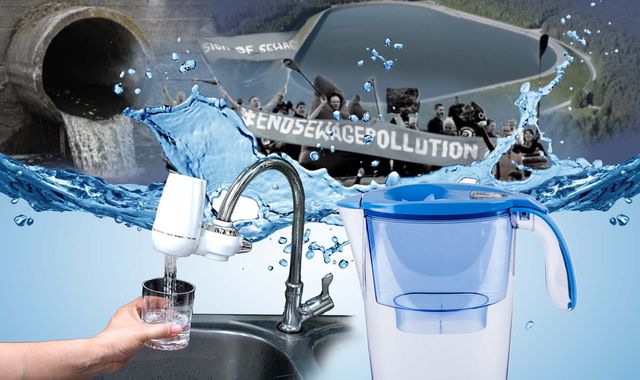The rise is equivalent to an average extra of £31 per year.
Water companies had asked for an average rise of 40%.
The regulator’s draft determinations issued in July said the bills would rise by an average of 21% up to 2030.
It comes as almost 60,000 homes across Hampshire are without water because of a “technical issue” at a Southern Water supply works.
Who’ll pay the most?
These Southern Water customers will experience the biggest bill rise of all eleven water and wastewater companies, a 53% hike. The company had sought an increase of 83%.
Customers of Wessex Water will have the lowest, 21%, bill rise.
The 16 million customers of the UK’s biggest water company Thames Water will see bills become 35% more expensive. It’s below the 53% requested by the utility.
By 2030 a typical annual bill will be £588.
Paying the most every year in five years’ time will be Dwr Cymru customers with an average annual bill of £645.
Why are bills going up?
Bills are going up as the utilities face higher borrowing costs on large levels of debt, creaking infrastructure and record sewage outflows into waterways.
The Ofwat announcement has agreed to investment plans by the water companies. Funding this investment is another reason bills have been allowed to rise.
It has approved £104bn in funding, above the £85bn agreed with firms in Ofwat’s draft determination but just below the £108bn the companies wanted.
Higher bills will not solve the financial woes at some of the utilities, including Thames Water, which this week won court approval to pursue the next phase in securing a £3bn emergency loan.
If approval had not been granted Thames Water told the High Court it would run out of cash by 24 March and would likely be pushed into a government-backed special administration regime.
Ofwat chief executive David Black said, “We recognise it is a difficult time for many, and we are acutely aware of the impact that bill increases will have for some customers. That is why it is vital that companies are stepping up their support for customers who struggle to pay.
“We have robustly examined all funding requests to make sure they provide value for money and deliver real improvements while ensuring the sector can attract the levels of investment it needs to meet environmental requirements.”






























